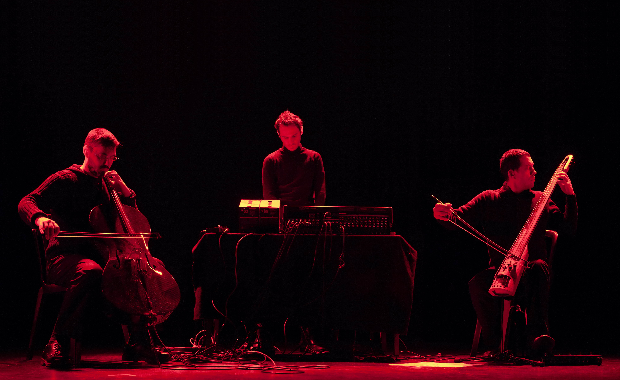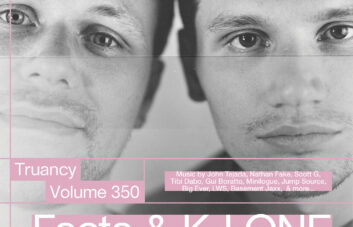We’re sat in the town square. The sound of the life around us buzzes in our ears; the coherent yet unintelligible voices of our neighbours and the townsfolk find their way to us, occasionally belonging to children, and even less so women, as men vie to place theirs above the rest; the market stalls situated in the distance, perhaps where the discussions held in motion are headed; the busker, perched nearby, honing their craft as they channel the spirit of their surroundings through the woodwind extension of their own self. Our kindred wallflower’s notes meander in and out of village chatter, weaving through a bustle unconcerned by the world outside of its bubble, untouched by time. It’s a different time, and the people talk in their mother tongue but for one man who speaks in a nuanced, yet positively foreign way – even the flutist registers interest by way of a pause. His manner of conversation is more akin to a recitation, and the words that may not belong to but certainly arrive through him can be heard: “Because I love… I love the people. All the people.” And like a gargantuan ship announcing its presence in the black of night, or the sound of a dream being torn down and shattered, a bleak beacon sounds from the deep. So begins Mohammad’s Zo Rèl Do.
Mohammad is a collaborative project headed by Nikos Veliotis, Coti K. and ILIOS, who runs the Antifrost label they’re usually on. The three of them are either based in or have grown up in Greece, and first appeared on our shores by way of the often moving, occasionally petrifying and wholly outstanding Som Sakrifis, released on PAN last year. Returning to their home label, the group have plotted out a trilogy of records with the intention of exploring the sounds of “the geographical area between 34°Ν – 42°Ν and 19°Ε – 29°Ε” – the southern, Hellenic part of the Balkans, plus Turkey east of Istanbul, all shown on a map excerpt here. It would be a mistake to assume the vessel of such excursions is folk music however, as Mohammad are a three-piece consisting of a cellist, a contrabassist and one who experiments with the two using oscillators. They are keen to exhibit various descriptions attributed to their sound on their website as phrases like “chamber doom” and “monolithic” ring true for their music. (Another quote, “sonic rape” appears and apart from being wildly inaccurate, it’s an insensitive aggrandisement – Mohammad themselves are unconcerned by the weight of the embellishment, instead professing to be interested by its temerity despite their website’s keenness to use it as a boast.) Indeed the opening track, “Urso Nesto”, is one of the rare times vocals surface on Mohammad’s work, faint as the field recordings or samples are. It does seem that a bridge between times exists stemming from Balkan folk origins to Mohammad’s modulations, and the album cover of a woman in traditional Greek dress by a well depicts 1821 living. Still, as bow intersects with cello, awareness of time quite simply dissipates.
Stream: Mohammad – Samarina (Antifrost)
The range of emotions instigated by Zo Rèl Do is impressive, considering that it’s almost never positive. Generally, drone tends to be quite austere, though the thing that helps Mohammad thrive is the fluidity of the power dynamic between the trio; even if a lot of their sound is left in the hands of the oscillator, ILIOS rarely gets carried away, so when the contrabass carries a relatively static progression on tracks like “Kabilar Mace”, it’s balanced by the jittery and off-kilter shrieks of Veliotis’ cello. As capable as they are at adrenaline rushes such as on that track, they play the mood game at least as well, felt through the sparse eeriness of “Marik” which takes a couple of minutes to wake, or on “Grabe”, with its caustic riffage as the sound of strings’ attrition gradually erodes the mind too.
It becomes increasingly clear how much that opening track, “Urso Nesto”, was a fish out of water, though the group retain some surprises for the second half of the record. Zo Rèl Do’s most salient connection to its Balkan setting appears on the latter end of “Kounye A Zwazo Yo”, a vibrant and exotic waltz through stricken regality. The record draws to an end with several minutes of overlapping, percussive shakers, atmospheric in the way crickets are in the wild, more camouflaged than subtle as they occasionally excerpt of a rhythm slides to the top. It’s somewhat bewildering as it follows on from “Samarina”, a highlight that harbours more character than the other tracks. It takes its name from one of the highest villages in Greece, up in the Pindus mountain range, sitting ambiguously between the ancient states of Epirus, Thessaly and western Macedonia. Here the Latin people native to the southern Balkans – the Aromanians – can still be found, proud of their heritage in a town that culturally flourished as the dissolution of the Ottoman empire began. The track itself is searing, soaring and proud too, birdlike in its mannerisms, perhaps a bittersweet paean in tribute to a world or people past. Mohammad further their explorations in low-frequency inter-modulations on Zo Rèl Do, but at the very same time they encounter all the pitfalls between dread and loss, pride and awe.
Zo Rèl Do was released on CD in May 2014 and is available to buy from the Antifrost shop. Its vinyl release is due July 2014.



